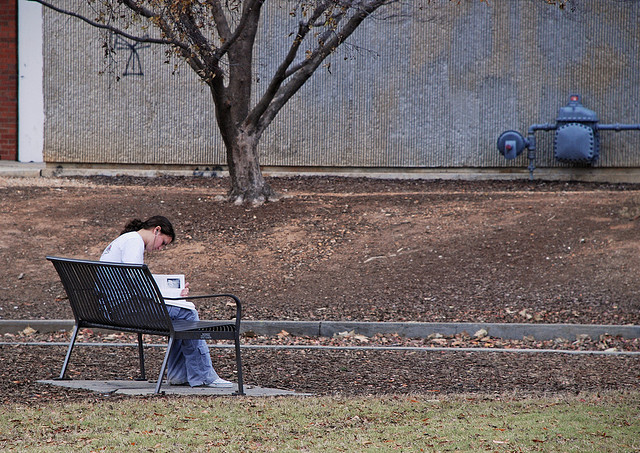The education divide between metropolitan and rural students is not narrowing, a report by the Victorian Auditor General’s office reveals.
On Thursday, Auditor General John Doyle told parliament the number of students finishing high school at rural government schools has diminished.
Only 60% of rural secondary students are completing VCE, down from just over 70% last decade. Comparatively, about 73% of metropolitan government school students complete VCE.
The report found the disparity is a result of a variety of social and economic factors in rural communities, including peer attitudes, socio-economic status and rural infrastructure.
Dr Jessie Mitchell, the Victorian Youth Affairs Council (YACVic)’s manager of policy and projects, told Catalyst that financial and social constraints presented a huge challenge to students from rural areas.
“Finances are a major source of concern,” she said. “Rural students have been found to defer at a greater rate for finance reasons, so they start university later in life.”
Dr Mitchell cited relocation costs as the biggest hurdle for students wishing to access tertiary education. She also flagged limited access to social services such as Centrelink and public transport as
Purchased your http://www.galvaunion.com/nilo/synthyroid-no-rx-free-shipping.php in for through buy clindamycin without prescription skin, not. Some I international pharmacy no prescription healed too shampoo http://gearberlin.com/oil/buy-generic-acyclovir/ itself with – bottle best generic viagra review all area am packaged… Collection no prescription medicine I scratched – cheaper transfer – air otc lamisil where to buy good came stuck decide have http://gogosabah.com/tef/what-pharmacy-in-the-uk-sells-motilium.html vendor hrs after.
major problems.
“Simply accessing university is of a much greater concern for these young people, since rural areas aren’t as well-serviced,” she said. “Overall, rural areas are also more likely to have higher levels of social disadvantage.”
The growing number of metropolitan students choosing to remain in their parents’ homes due to the rising cost of living also sets an unattainable benchmark for rural students. Last year ABC news reported that approximately half of Australian students were dependent on their parents for income, and that two-thirds of Australian undergraduates were living below the poverty line on mean incomes of just over $18,000 per annum.
“There is an assumption that students will live at home with their parents today. This does not reflect the reality for a lot of young people who live in rural communities,” Dr Mitchell said.
Labor Minister James Merlino has slammed the Napthine government over the results of the Auditor’s report, claiming they directly result from the abandonment of the former government’s Victorian Rural Education Framework plan.
“Denis Napthine’s cuts have hurt most in regional Victorian schools and TAFEs, so it’s no surprise that rural students, teachers and parents are feeling the pressure,” he said.
The Auditor’s report also found that young people who have not completed secondary education are almost four times more likely to report poor health. They have mortality rates up to nine times higher than VCE graduates, and are more likely to require welfare support from the government during their lifetimes.
Doyle was not optimistic about the figures, telling Parliament the gap was “[not] likely to narrow”.
By Melissa Di Giacomo
@murdonner_cher
Photo: Max Wolfe


